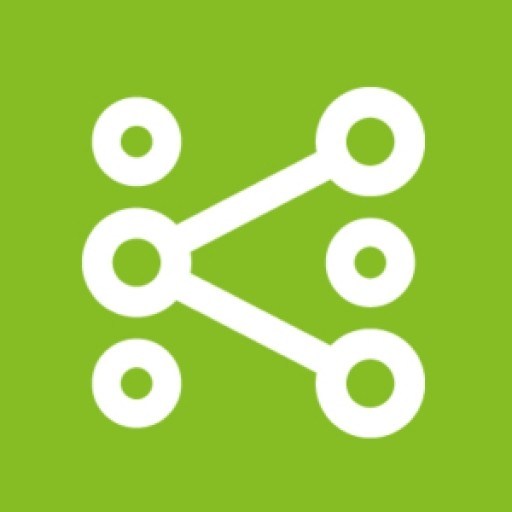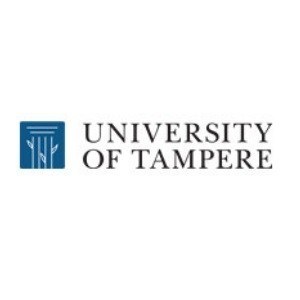Photos of university / #unigoettingen
Development Economics at the University of Göttingen offers an in-depth exploration of the economic processes that drive growth, development, and poverty reduction in developing countries. This program is designed for students interested in understanding the complex interrelation of economic, social, and political factors that influence development trajectories around the world. Through a rigorous combination of theoretical frameworks, empirical analysis, and policy-oriented approaches, students acquire the skills necessary to analyze development issues and to contribute to evidence-based solutions.
The curriculum covers a broad range of topics including the fundamentals of micro and macroeconomics, the measurement of development, the role of institutions, agricultural economics, the impacts of globalization, and strategies for sustainable development. Students will explore the causes and consequences of economic inequality, the design of development policies, and methods of evaluating their effectiveness. Special attention is paid to analytical tools such as econometrics, survey methodology, and data analysis, which are essential for conducting research and policy analysis in development contexts.
The program emphasizes a multidisciplinary approach, integrating insights fromeconomics, political science, sociology, and environmental studies. Practical skills are fostered through seminars, workshops, and collaborative projects, enabling students to apply their knowledge to real-world challenges. Additionally, students have opportunities for international exchange and fieldwork, providing valuable firsthand experience in developing regions.
Graduates of the Development Economics program are well-prepared for careers in international organizations, government agencies, non-governmental organizations, research institutions, and the private sector. They also gain a solid foundation for advanced research or doctoral studies in development economics or related fields. The University of Göttingen's faculty comprises renowned experts whose research informs the curriculum, ensuring that students are engaged with current debates and innovative approaches in the field of development economics. By the end of the program, students will have developed a comprehensive understanding of development processes and the analytical skills necessary to contribute meaningfully to global development efforts.
Development Economics at the University of Göttingen is a comprehensive and rigorous programme designed to equip students with a deep understanding of the economic forces driving development and poverty reduction in developing countries. The curriculum combines theoretical foundations with practical applications, encouraging students to analyze complex economic, social, and political issues faced by developing nations. Students will explore topics such as economic growth, income distribution, globalization, financial markets, agricultural development, and the role of institutions in fostering sustainable development. The programme emphasizes the importance of multidisciplinary approaches, integrating insights from economics, sociology, political science, and environmental studies to provide a holistic perspective on development challenges.
Throughout the course of study, students engage with both quantitative and qualitative research methods, enabling them to evaluate policies and design effective development strategies. The curriculum also includes modules on international trade, foreign aid, and the impact of technological innovation on developing economies. Practical training is integrated through case studies, fieldwork, and internships, allowing students to gain real-world experience and apply theoretical knowledge to practical problems. The programme aims to prepare graduates for careers in international organizations, NGOs, governmental agencies, research institutions, and the private sector, where they can contribute to development policy, economic planning, and project implementation.
Students will benefit from the university’s close ties with international development institutions and its diverse faculty, which includes experts in development economics, policy analysis, and international cooperation. The programme supports an interdisciplinary and analytical learning environment, fostering critical thinking and innovative solutions to development issues. Upon completion, graduates will possess the analytical skills, policy understanding, and practical experience necessary to make meaningful contributions to the promotion of sustainable economic development globally. The programme is designed for students passionate about making a positive impact in developing countries and eager to understand the complex economic dynamics that influence development processes worldwide.
The Development Economics master's program at the University of Göttingen is designed to provide students with a comprehensive understanding of the economic aspects of developing countries, addressing issues such as poverty reduction, sustainable development, and economic growth. Admission requirements typically include a recognized undergraduate degree in economics or a related field, with a solid foundation in microeconomics, macroeconomics, and quantitative methods. Applicants are often expected to demonstrate proficiency in English, usually through standardized tests such as TOEFL or IELTS. A relevant academic background with coursework or research experience in development, economics, or social sciences is highly advantageous. Additionally, some programs may require a motivation letter outlining the applicant's interest in development economics and career goals, as well as references from previous instructors or employers attesting to the applicant’s capabilities and motivation. While specific GPA thresholds are not explicitly stated, competitive applicants usually have strong academic records. Prior experience with empirical research, data analysis, or fieldwork in developing contexts can strengthen an application. The application process involves submitting all necessary documentation via the university’s admissions portal before the specified deadlines. Prospective students are encouraged to review the program’s detailed admission criteria on the university’s official website and contact the admissions office for any clarifications. The curriculum combines coursework, seminars, and research projects, aiming to develop analytical skills, theoretical understanding, and practical competencies relevant to development policy and practice. Fluency in multiple languages, particularly those relevant to developing regions, can be an asset but is not a strict requirement. Overall, applicants should demonstrate a strong motivation for tackling global development challenges and readiness to engage in rigorous academic work.
The financing of the Development Economics program at the University of Göttingen is primarily structured through a combination of public funding, tuition fees, research grants, and private sponsorships. As a public university in Germany, Göttingen receives significant financial support from federal and state governments, which covers a substantial portion of operational costs, faculty salaries, and infrastructural expenses. Tuition fees for international students are regulated by the state and are generally modest compared to private institutions, making the program accessible to a diverse student body. The university also benefits from research grants obtained through competitive bidding processes, primarily from European Union funds, German research foundations, and international organizations interested in development studies. These grants support specific research projects, faculty positions, and student scholarships, thereby contributing to the program’s overall financial stability and quality.
Additionally, the university encourages partnerships with governmental agencies, non-governmental organizations, and private sector entities involved in development work, some of which provide sponsorships, scholarships, or funding for student internships and exchanges. The program may also offer part-time employment opportunities for students within the university infrastructure or collaborating organizations, enabling students to offset living costs while gaining practical experience. Financial aid options, including scholarships for outstanding students and bursaries based on need, are available through the university's scholarship office, further aiding students in financing their studies.
Moreover, the program's integration with research centers focused on economic development facilitates access to specialized funding sources dedicated to socio-economic advancement initiatives. This diversified funding approach ensures the program's sustainability and allows for continuous curriculum development, faculty recruitment, and international collaboration. Overall, the financial structure underpinning the Development Economics program at Göttingen reflects a comprehensive strategy that leverages public resources, competitive research funding, private sponsorships, and student support mechanisms to provide high-quality education and research opportunities.
Development Economics at the University of Göttingen is a comprehensive program designed to provide students with a thorough understanding of the economic issues faced by developing countries. The curriculum combines theoretical foundations with practical applications, emphasizing issues such as poverty reduction, economic growth, sustainable development, and the role of institutions and policies in shaping economic outcomes. Students engaging in this program will study diverse topics including microeconomics, macroeconomics, international trade, export strategies, and development policy analysis.
The program aims to equip students with analytical skills necessary to assess development strategies and design effective interventions. It also emphasizes interdisciplinary approaches, integrating insights from political science, sociology, and environmental studies to address complex development challenges comprehensively. The program is typically structured to include coursework, seminars, and research projects, fostering critical thinking and problem-solving abilities.
Students have access to state-of-the-art research resources and are often encouraged to undertake fieldwork or internships to gain practical experience. The University of Göttingen maintains strong links with international organizations and development agencies, providing opportunities for networking and collaborations. Graduates are prepared for careers in international development agencies, governmental organizations, non-governmental organizations, and research institutions focusing on development issues.
The program is taught in English, attracting an international student body and faculty, fostering a multicultural learning environment. Admission requirements usually include a bachelor's degree in economics or a related field, language proficiency, and a motivation statement. The program duration is generally two years for a master's degree, with options for specialization in areas such as sustainable development, economic policy, or global trade. Graduates leave well-equipped to analyze development problems, formulate policies, and contribute to sustainable economic progress worldwide.








